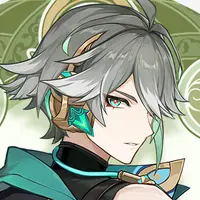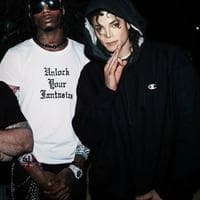Riku Takasou mbti kişilik türü
Kişilik
"Riku Takasou hangi kişilik türü? Riku Takasou, MBTI, 5w6 - sp/sx - 531 'de INTJ kişilik türüdür, RCOEI, RCOEI, büyük 5, LIE' dır."
This is my third time rewriting this because I keep finding new information. Anyway. This was also 7.5 pages total on google docs. Notes on Riku: Before you’re wondering, I really, really considered ENTJ and I honestly believe it can go both ways. I wrote up a whole analysis as to why I thought it was ENTJ, but at this point, with a character like Riku, I had to go off of traits we see the most from him. He really is right there in the middle between these two types. INFJ (Ni-Te-Fi-Se) “Ni is a perceiving function most related to convergent thinking. Ni focuses on taking in multiple data points/physical stimuli in reality (Se) and finds one underlying pattern, concept, or answer that relates them all. These underlying patterns then become heuristics/rules of thumb that are then used to explain and predict the physical world. The underlying pattern can be a cause-and-effect relationship or just a single single concept that *relates* all the distinct stimuli.” “Te (extraverted thinking): Te is a judging function that determines if something is invalid or valid based on a heuristic and is heavily related to inductive reasoning. Te is a judgment function that sacrifices accuracy in order to come to a quick conclusion (Note: with inductive reasoning, you can never be certain that your conclusion is true, you just aim for a conclusion that is *likely* or *probably* true)” “Fi (introverted feeling) - Fi is a judging function that determines if something is good or bad (or morally right or wrong) based on consistency with one’s own existing set of internal/personal values. Fi is most related to ethical consistency and focuses on decisions/conclusions that will allow the user to be content with said decisions/conclusions in the long-term. Fi tends to be self-referencing and comes to conclusions based on one's own past experiences. Fi is essentially the golden rule, ‘treat others as you wish to be treated.’” “Se is a perceiving function in which you take reality for what it is without adding any abstract meaning to it. It is a perception function where you use your 5 senses (e.g. sight, taste, touch, hear, smell) to sense the environment. I see Riku’s critique of the external world as his way of giving advice and providing care for his classmates. He does care deeply, especially when he thinks someone could be hurt - Rokuro with Yoinara in the morning of the reset day, and Rokuro with Zero later on in the day - but it sometimes has the opposite effect. He doesn’t intend to make people feel bad either, since he critiques Rokuro on him finding the whole “getting on people’s nerves” to be his idea of fun, basically saying that Riku doesn’t really tell others off the way he does because he finds enjoyment in it but because that’s how people will learn. Karuta even stresses that Riku is probably one of the best teachers ever (“Maybe the best of us?”) He also tends to philosophize, especially in situations he feels most comfortable in. When all of the boys decide to go out to eat, Riku’s reaction is “giving your all even in play… that’s the way of men”, remarking at the situation with a pretty common philosophy/expectation of young boys. I do want to note some contradictions - for example, even though they’re all ready to down some good food, Riku critiques Karuta wondering how he can eat so much abura soba all the time, and also critiques the magazine group for looking at waffles because it’s childish. He seems to want to grow up quickly. Philosophizing is a sign of Ni. Striving for a higher pace of goal achievement sounds like an Ni-Te dominant-auxiliary of INTJs and ENTJs. (Part of these goals is teaching others successfully to test his own knowledge on the subject!) Rokuro and Riku’s conversation: The focus of the conversation is on the idea that Rokuro tells Riku to have more fun and lighten up and be less serious. Riku immediately connects this to Rokuro’s loose morals, and says that if making people miserable is Rokuro’s idea of fun, then Riku has a right to despise it. Even suggesting that Riku should try to indulge in something as abhorrent as that bothers him. Connecting the idea of morality to satisfaction and contentment is part of Fi. It’s also the driving force for why Riku does tutor and give advice to others - there has to be mixed feelings on his parents hiring him a tutor. Despite it, to prove them wrong, it’s just natural for him to attempt to pass on knowledge on to others the best way he can, as well as the sentiment of care that he knows his parents must have for him… but having it revealed to people that you need to be tutored is a little undignifying. Anyway, you can tell Fi is one of Riku’s decision-making processors (not the main one, but it definitely is one of them).
Biyografi
Takasou Riku is a supporting character in Ayakashi Akashi. He is very confident in himself, and tends to look down on others, though not intentionally. He is good friends with Karuta, which the teacher suspects is "a result of Karuta's tolerance forgiving Riku's eccentricity."
Kişilik correlate

Rokuro Yamakagashi

Kashima Akebono

Tina Etupirka

Naki Kokuriko

Enju Yoinara

Zero Manzanka

Yuki Utashiro

Haito Minai
















